Best Friends, Mortal Enemies
By Evelyn David
Jodie Foster’s gracious, thoughtful, clever, impassioned (if
slightly confusing) speech at The Golden Globes captured the interest,
attention, and affection of most viewers. Although she never used the word
“gay,” the audience, both those in the theater and those watching on
TV, understood that it was a deliberate choice she was making in
“outing” herself – and she gave a clear explanation of why she has
chosen to remain private all these years. I admire and respect her as a
phenomenal actress, as well as believe she is a lovely person.
that he was sitting at her table, right next to her, along with her children?
anti-semitic, anti-gay, racist tirades have appalled most of us. The words he
has used would offend almost anyone. And yet, from the beginning, Jodie Foster
has been a strong supporter of Gibson – and insists that he is not really the
man who spews such hatred. “He’s not a perfect person,” she says. “He’s a
complicated person. That’s why I love him.” In another interview, given as
part of publicity for the film she directed and in which Gibson stars, she
said, “When you love a friend, you don’t abandon them when they are
struggling,” Of course, Mel is an undeniably gifted actor and director,
and ‘The Beaver’ is one of his most powerful and moving performances. But more
importantly, he is and has been a true and loyal friend. I hope I can help him
get through this dark moment.”
even if I wonder if it’s misplaced.
Then there is the friendship of Antonin Scalia and Ruth
Bader Ginsburg. I don’t think you could find two more divergent jurists. They are
literally at opposite ends of the spectrum in terms of judicial philosophy; he
is an unapologetic conservative, she is an equally proud liberal. But these two have
been best friends for more than 30 years. They and their spouses have spent
every New Year’s Eve together for decades. They even take trips together.
Clearly, I don’t want a clone of myself. I’ve got friends with whom I never
discuss politics because it will only lead to disagreement. We all know where
we stand on issues. But I also know that even if we don’t agree on candidates
or politics, we share common ground on fundamentals about family, religion,
service to others, or we have similar interests. I am told that Scalia and
Ginsburg both love music, especially opera, and, as Justice Ginsburg has explained, “I
can say one thing about Justice Scalia. He is one of the few people in the
world who can make me laugh, and I appreciate him for that.”
Scalia/Ginsburg can be friends, is that something we should all aspire to do?
Or is there a limit to friendship, a line which can’t be crossed?
A Reason to Give Thanks includes: Giving Thanks
in Lottawatah, Bah, Humbug in Lottawatah, Moonlighting at the Mall, The Fortune
Teller’s Face, A Reason to Give Thanks, Sneak Peek – Murder Off the Books,
Sneak Peek – I Try Not to Drive Past Cemeteries
A Reason to Give Thanks
Kindle
Nook
Smashwords
Sullivan Investigations Mystery
Murder Off the Books Kindle – Nook – Smashwords – Trade Paperback
Murder Takes the Cake Kindle – Nook – Smashwords – Trade Paperback
Riley Come Home (short story)- Kindle – Nook – Smashwords
Moonlighting at the Mall (short story) – Kindle – Nook – Smashwords
Brianna Sullivan Mysteries – e-book series
I Try Not to Drive Past Cemeteries– Kindle – Nook – Smashwords
The Dog Days of Summer in Lottawatah– Kindle – Nook – Smashwords
The Holiday Spirit(s) of Lottawatah– Kindle – Nook – Smashwords
Undying Love in Lottawatah- Kindle – Nook – Smashwords
A Haunting in Lottawatah – Kindle – Nook – Smashwords
Lottawatah Twister – Kindle – Nook – Smashwords
Missing in Lottawatah – Kindle – Nook – Smashwords
Good Grief in Lottawatah – Kindle – Nook – Smashwords
Summer Lightning in Lottawatah – Kindle – Nook – Smashwords
The Ghosts of Lottawatah – trade paperback collection of the Brianna e-books
Book 1 – I Try Not to Drive Past Cemeteries (includes the first four Brianna e-books)
Book 2 – A Haunting in Lottawatah (includes the 5th, 6th, and 7th Brianna e-books)
Romances
Love Lessons – Kindle – Nook – Smashwords


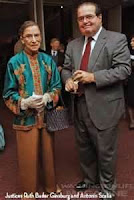

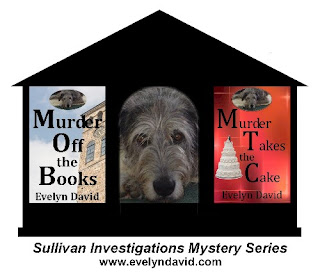

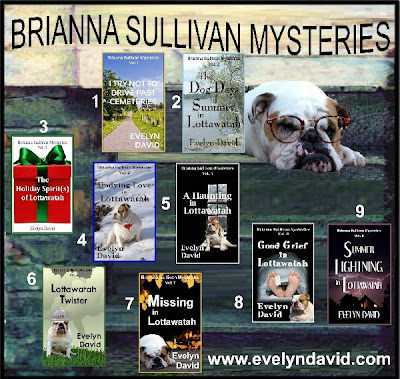
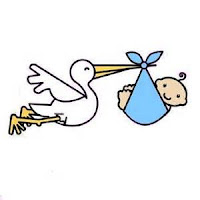
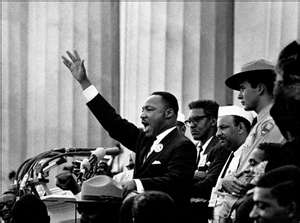
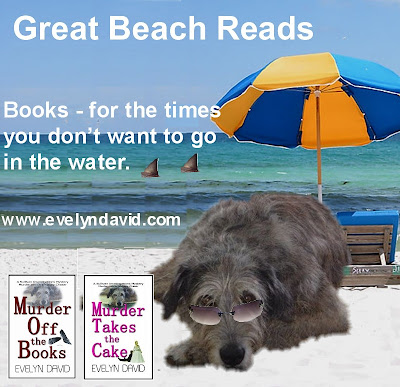



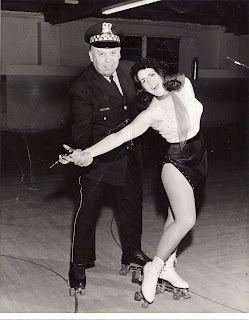
Marian,
Well stated.
Thank you.
I am all for divergent opinions but what I want from my other-minded friends is respect. I have a friend on FB with whose friendship I am struggling right now because our views are very different (ok) but my views are treated as ignorant and naive (not ok). I respect their opinion on a variety of topics but they don't respect mine and that's where I draw the line. Maggie
The first thing I think of after reading this is that what is GREAT in any friendship is a little more "SHUT UP!". By this I mean treating one another with a high respect for privacy, guarding the intimacy of friendship. I know that in the case of grand public figures and lives this is trickier and that when you feel a friend is maligned the instinct is to defend them out loud. Plus, there is that whole “role model” aspect at play, especially for celebrities. BUT, how about a little less explanation and feeding the gossip beast and a little more “I have nothing to say except he/she is my friend and matters to me and I don’t want to hear the negativity, nor do I want to discuss it.” That’s loyal and that’s enough.
I don’t tell my friends’ stories to others. Those are their lives to reveal as they choose. I’m no angel and I do sometimes dish the derision on people I don’t like or who I feel have hurt someone (like me, in most cases), but generally I do that on a small, private scale. The trouble is that our world is increasingly one of everyone making everything public all the time, and a lot of what they make public has swept up into it other people. We’re throwing away with both hands the small, private scale of living. I have been at a social event and suddenly some idiot is running around snapping pictures with their smart phone that they giggle about posting a.s.a.p. to their FB page. How rude and wrong. But, people don’t think about that anymore. They don’t see that they are ONE person in that moment and experience and that they have no right to cannibalize someone else’s image or words and put pictures or email snippets up and out on the internet as nothing more than a part of their own life.
This is narcissism and it’s bad news for friendship.
As to Foster’s choice to out herself? Well, as our society grows up that has gotten to be less of a big deal and just, well, an odd idea. Foster has been “out” for a couple of decades and those who don’t like it, but whose business it really isn’t, still don’t like it and never will. Those who are fine about it, but whose business it really isn’t, will always be fine with it. People of my generation and older felt the real pressures and weight of the concept of coming out. The new generations in our brave new world? They don’t give a hoot. I think that’s one of the reasons some termed her speech “confusing”—many don’t get why this was something that needed speechifying. She’s been asked about being gay many times—and, let’s not kid ourselves it was because we all knew she was gay and people just wanted to see if she’d admit it—and took the road I recommended above: you can ask about my personal life, doesn’t mean I’ll answer. And, that went for not just her sexual life, but her life as a parent, her kids, etc. That stuff was private.
If we guarded the privacy of the ones we love and like with the same vigilance, it would be nice for friendship. And, just maybe it would model to others how we want ourselves discussed or not. Want to know what I think about my friends’ troubles, or for that matter their joys? You can ask, doesn’t mean I’ll answer.
Thanks Pam, Maggie, and Vicky for your thoughtful takes on friendship.
I think what I find interesting about these public figures and their choices of friends, is not that they have to defend them to me, obviously they don't. But I do wonder when a friend's actions or beliefs are so very antithetical to my own, would I choose to distance myself from him/her, even if the individual is personally very kind to me?
I think on that point, Marian, you'd still be true to them and work to be clear with them, be your true self in talking with them, and let the public side of your friendship take care of itself, just sort of ignore it. After all, there are plenty of people I think we all don't count as friends from whom we know we have opposite beliefs and values–it's not the rather large lack of shared values that is our sticking point, it seems to be something else, something more abstract and sort of gut-feeling about them. Or, maybe it's just that of the things you don't have in common there are one or two that are just your absolute, deal-breakers?
The ones who we still tag as friends despite that must deserve a chance at some sort of detente? But, your point is well heard–there are degrees of friendship and I do think that we are going to naturally be closer to and warm up more to the ones with deeper and stronger shared bonds. We don't want to banish the ones we share less with, but I know it's natural to maybe hedge a little more with them in terms of time spent, etc.? There are a few people about whom I've heard others say bad things and my experience of them is not, so I usually just say "you know, all I can tell you is that he/she has always been good/fair/decent to me". But, even if I defend them to that degree, I may not be always eager to spend time with them. They are the marginal friends, I guess. And, of course, I assume I'm one of their marginal friends.
If your friendship changes because of each of you being true and honest, even in kind and respectful ways, that's acceptable. Though, I know, sometimes sad. No one likes to come to know a relationship is just no more, right?
Maybe the writers of the world should come up with a new word for this sort of relationship–they are more than acquaintance (or, are they?), not always colleagues, but not "real" friends? What would be the mid-step there?
Marian, thank you for such a thoughtful, reflective post. And for asking such a challenging question.
I have some friends and family members who live at opposite ends of the political spectrum from me, and whether we stay close depends on respect. If I respect their right to differ in thought, will they respect mine?
To get very close to home, one of my sons is a staunch political conservative (though not necessarily Republican or Tea Party) while I'm a pretty staunch liberal. We prefer to avoid political discussions so we don't get into silly arguments since neither of us is going to change the other's mind. He has really thought out his stand, as have I. I love and respect him, and he loves and respects me. We have had lots of private talks, and I know he's not anti-gay or anti-woman or racist (having experienced a lot of it against him for being Latino and Native American) or anti-poor, and he hates the part of the conservative world that takes those stands. I also know that he would face death for me or his siblings (including his liberal gay brother), as I would for him.
On the other hand, my husband's brother is a Rush Limbaugh follower who holds only contempt for my husband and me, anti-woman, anti-gay, anti-minority, anti-poor, ad nauseum. He's also demeaning, nasty, and mean verbally about it and threatening physically, so we don't see him, except at large family gatherings (mostly funerals) where we keep our distance.
I use the same criteria with friends. If they are able to respect, even as we differ, and if I know we agree on some basic, nonpartisan fundamentals, we continue to be friends across our differences, but if they are demeaning and insulting and show no respect for large parts of the human family, they're no longer a part of my life.
I agree with all of the above. I am friends with people who have different views on life than I do, but we treat one another with respect. I have friends for whom I care deeply, even though I am not always certain they have made perfect decisions about their lives. But, I have not always made perfect decisions either. I may not agree with you and your words, but I will defend with my life your right to say those words. It is not always easy to maintain friendships no matter the situations. We move distances apart, literally and figuratively….and we hope for the best for one another. And we treasure what we hold dear, no matter the faults in ourselves and our friends.
I don't see anything strange about keeping a friend with a different political viewpoint as long as that person isn't in your face about it. The fact is no one is a stereotype, but a real person.
Morgan Mandel
http://www.morganmandel.com
Thanks to all for the thoughtful discussion.
I think the essence of a good friendship is, as you have all said, respect. I'd broaden it a bit. I need to see respect not just for differing points of view, but a basic respect for humanity. I have no problem if friends don't agree with my political choices. What generally makes them friends, however, is that we agree on the concept of treating all people with respect, regardless of their gender, race, sexual orientation, etc.
Thanks for joining the conversation.